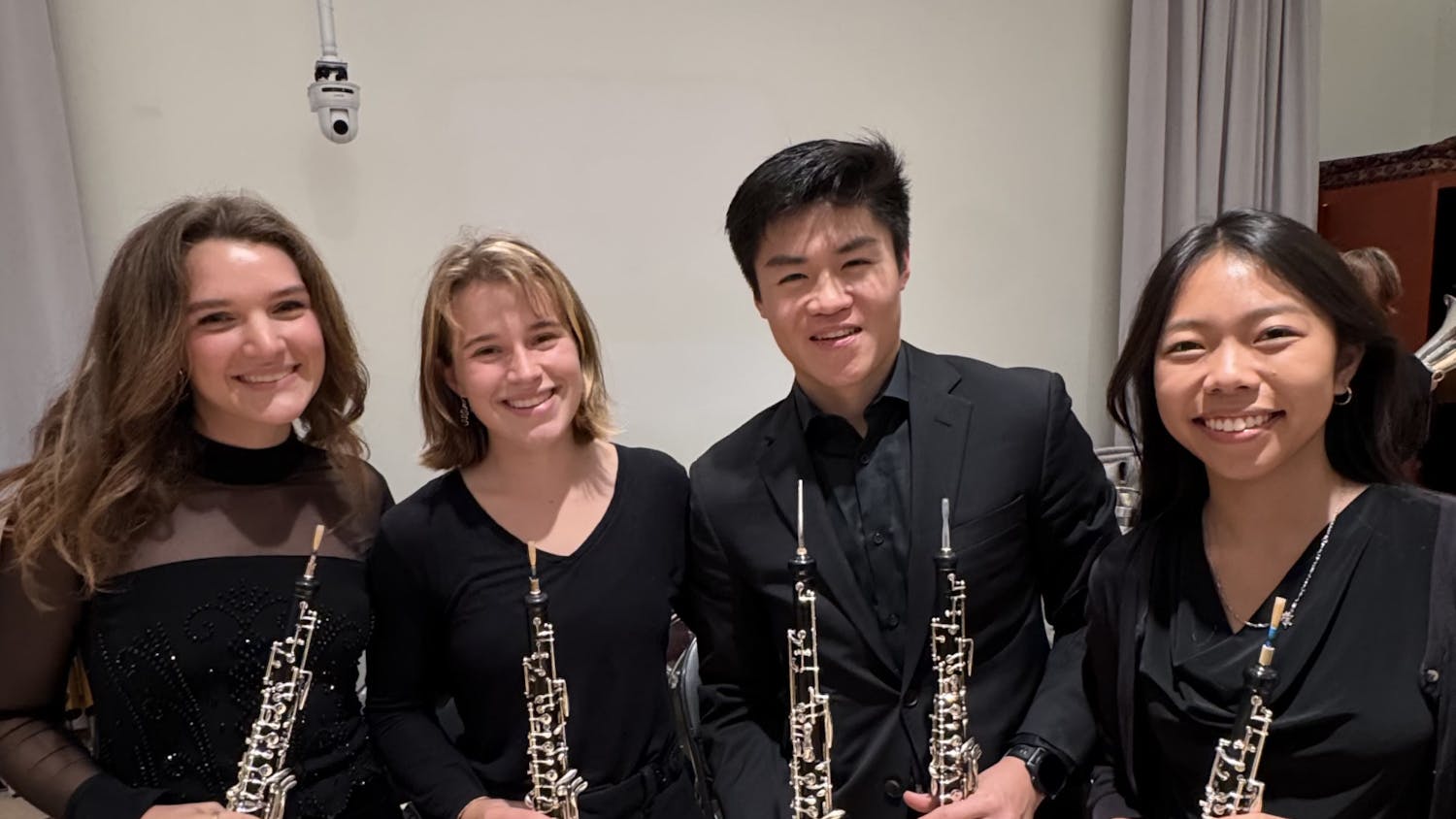Ghertner uncovers the lives of five fruitworkers, three of whom are undocumented illegal immigrants living in the U.S. Over the course of 10 years, Ghertner follows these women and their tribulations as mothers, sisters, immigrant workers and inhabitants of a country that Ghertner feels is denying them basic workers' rights.
On Wednesday, Ghertner will host a special screening of her film in Loew Auditorium with a public discussion to follow.
Ghertner advocates for an overhaul of immigration policies implemented under the Bush administration while aiming to increase awareness among American consumers about the human cost of delivering food to supermarkets.
Ghertner was initially inspired to document the lives of these women after growing up near rural apple orchards around her hometown of Sodus, N.Y.
"I wanted to meet them, to understand how they lived and what happened after they picked the fruit," Ghertner said.
After years of witnessing workers faced with deportation and denied basic workers' rights, Ghertner, working with her husband John, has made it her life mission to improve workers' rights around the country.
Ghertner said she has been actively campaigning for immigration reform since 2006. A founding member of the Farmworker Women's Institute, Ghertner has vehemently defended the need to secure basic rights for the migrants and immigrants after learning firsthand the inequities that this community struggles with.
"At work, they would drive on the back roads because border patrol was cruising around," she said.
Ghertner is currently looking to establish fair labor practice reform through the New York state legislature in order to grant farmworkers the same rights as other labor workers.
"This would include overtime pay and disability insurance, some of which farmworkers have compensation for, but it doesn't always carry through. So if a worker were to be injured on the job, then there could be no compensation," she said. "Also, the right to organize. They can't go to their boss and say that they need better working conditions."
A respected visual artist and filmmaker, Ghertner often uses film as a medium to inspire advocacy in immigration reform. Ghertner produced the documentary "330 Miles to Justice," a story of the 2003 Farmworker's March in New York and has worked on other projects including "In Our Own Backyard: The Hidden Realities of Women Farmworkers."
In a particularly poignant episode from "After I Pick the Fruit," audience members observe how a series of raids by Immigration and Customs Enforcement agents in 2006 affected the five women that Ghertner follows, as well as their families and other residents around Sodus.
The film documents the shocked reaction of a farmer whose employee is ordered to leave the country before his eyes, and is subsequently picked up by local enforcement at a nearby coffee shop. Disturbing portrayals of worker treatment like these are common, if starkingly real, elements to the stories that Ghertner attempts to capture on film.
Adam Knowlton-Young, program manager for Tucker Foundation service trips, said he worked to bring Ghertner to campus to highlight her work in social justice on a campus where many students are passionate about similar human rights issues.
"[The film] ties in the under-examined issue of women as laborers versus men," Knowlton-Young said. "In general, women are under-examined and under-researched as a population. So the screening sort of touches on important issues that are certainly at the forefront of different aspects of importance to Dartmouth."
Ghertner's ultimate goal is to raise consciousness among American consumers about the human price of store-bought vegetables, she said.
"When you go the supermarket, you cannot see these [migrant workers] because they're invisible," Ghertner said. "I wanted to reach out to these women and find out what their stories were. These are the lives of the women who are picking our fruit."
The film screening is sponsored by the Council on Student Organizations, The Dartmouth Radical, Tucker and the film and media studies department. On Thursday, a luncheon to meet Ghertner will be hosted in the Class of 1930 Room in the Rockefeller Center.




